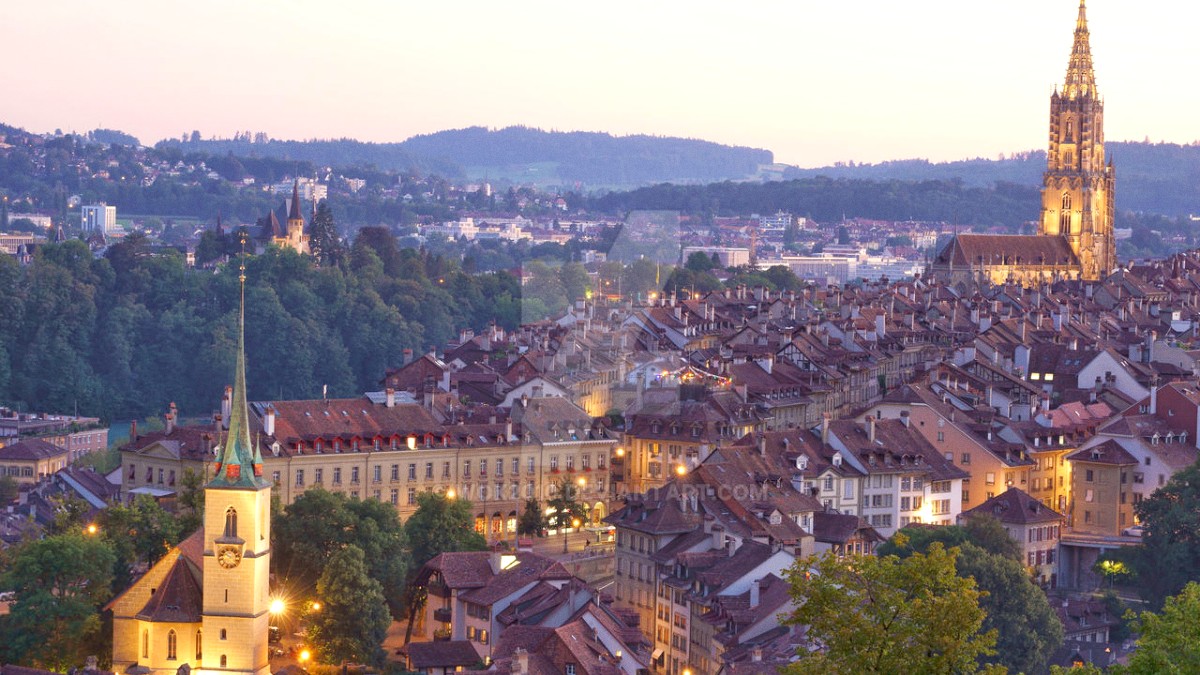
Switzerland
Bern experiences four distinct seasons, each bringing a different atmosphere and range of activities.
Spring (April-May): Temperatures are mild, averaging 8-15°C (46-59°F). Flowers bloom, and the city's parks begin to green. Precipitation is moderate, so some rainy days are possible. Autumn (September-October): The air turns crisp, and foliage displays warm colors. Average temperatures range from 10-18°C (50-64°F). This season is generally pleasant, with moderate rainfall and clear days. It is lovely for walks and enjoying the city’s beauty.
High Season (Summer: June-August, December): Ideal weather for outdoor activities, many festivals. Crowds are larger, accommodation prices higher. December features Christmas markets and a festive atmosphere, but it is cold and crowded.
Shoulder Season (April-May, September-October): Fewer crowds, pleasant weather for sightseeing. Accommodation prices can be lower. Weather can be unpredictable, with cooler days and rain possible. Low Season (November, January-March): Smallest crowds, allowing for a relaxed visit. Accommodation prices are typically the lowest. Cold weather and shorter daylight hours limit outdoor activities.
Summer (June-August) & December
Ideal weather for outdoors, many festivals, long daylight hours (summer). Festive Christmas markets (Dec).
Larger crowds, higher prices. Attractions may require advance booking.
April-May, September-October
Fewer crowds, pleasant weather. Accommodation prices may be lower.
Weather can be unpredictable. Some seasonal attractions might have limited hours.
November, January-March
Smallest crowds, lowest accommodation prices. Suitable for winter sports in nearby regions.
Cold weather, shorter daylight hours. Many outdoor activities are limited.
Summer (June-September) conditions are best for walking through the Old City and for hiking on Gurten or nearby trails.
July and August provide the best temperatures for swimming in the Aare, a popular local tradition.
December to March, for skiing or snowboarding, travel to nearby ski resorts like Adelboden or Grindelwald.
Late November to December for Bern’s festive Christmas markets.
The city does not have ski slopes but serves as a base for alpine excursions.
Daytime highs in summer can reach 30°C (86°F).
Crisp air and foliage make autumn ideal for scenic strolls.
Switzerland is part of the Schengen Area, simplifying travel for many visitors. VisaHQ is a resource for direct visa and passport services.
Citizens of many countries enjoy visa-free entry for tourism for stays up to 90 days within any 180-day period. Check if your nationality requires a Schengen visa.
Ensure your passport is valid for at least 3 months beyond your intended departure date from the Schengen area and issued within the last 10 years.
The currency is the Swiss Franc (CHF). While some places accept Euros, change is usually given in CHF, and rates might not be favorable. ATMs are widely available. Credit cards are widely accepted.
| Category | Budget | Mid-Range | Luxury |
|---|---|---|---|
| Accommodation | 35-60 (dorm) | 100-180 | 180-300+ |
| Meals | 5-15 (snack) | 20-40 (casual) | 40-70+ |
| Local Transport | 4.80 (single) | 10.50 (day pass) | 20-40+ (taxi) |
Switzerland is among the safest countries globally, and Bern has a very low crime rate. Nevertheless, awareness of health and safety guidelines prepares you for any situation.
No specific vaccinations are required for entry. Ensure routine vaccinations (MMR, DTP, Polio) are current. Consult a healthcare professional for personalized recommendations.
Sunburn (high-SPF sunscreen, sunglasses, hat), dehydration (drink plenty of water, tap water is safe). Altitude sickness is not a concern in Bern, but for high-altitude day trips, acclimatize gradually.
Switzerland has an excellent healthcare system, but medical costs are high. Travel insurance covering medical emergencies is highly recommended. Hospitals and pharmacies are easily accessible.
Tap water in Bern is safe and of excellent quality. Refill reusable water bottles from public fountains.
Food hygiene standards are very high in restaurants and food establishments. Eating street food or from markets is generally safe. There are no known specific food safety concerns.
It is always advisable to practice general good hygiene, like regular hand washing, especially before meals.
Consider a LifeStraw for water filtration for outdoor excursions if venturing beyond city limits and known safe water sources.
112 (European Emergency Number, works throughout Switzerland)
Police: 117 | Fire: 118 | Ambulance: 144
Note travel insurance emergency contact, country's embassy/consulate in Switzerland, and family contacts. Keep these numbers accessible.
Bern has a very low crime rate and is one of the safest major cities globally. Violent crime is rare.
Ensure your trip is secure with recommended safety items and medical kits.
Adventure Medical Kits provides first aid supplies for travelers, useful for any trip.
Pacsafe offers anti-theft bags and travel security products for peace of mind.
Always have a comprehensive travel insurance policy for medical emergencies, trip cancellation, and lost luggage.